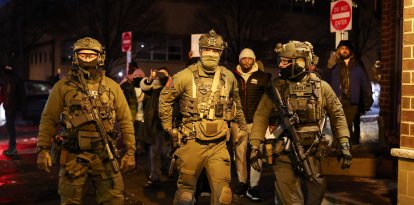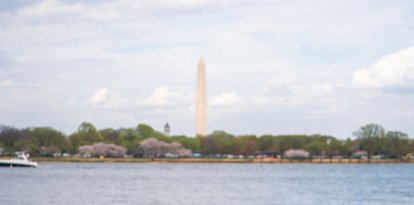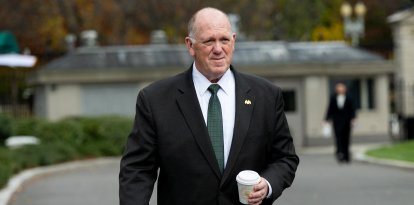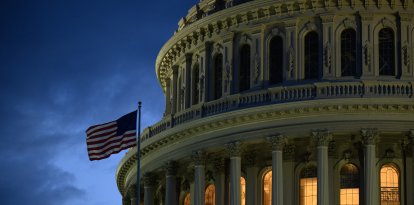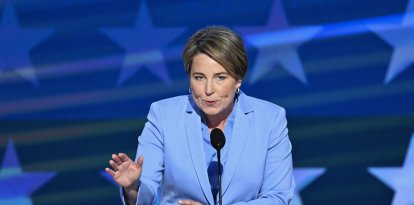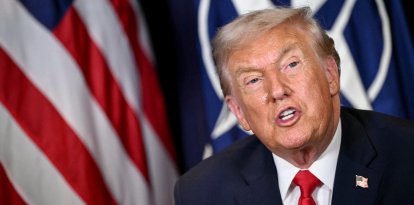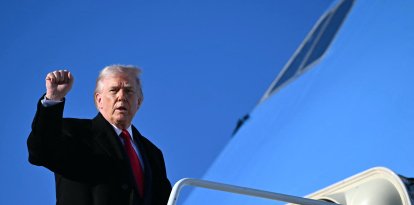Large share of Democratic voters want Kamala Harris as their candidate in 2028
According to a poll, 41% want the vice president to lead the next ticket, despite internal voices calling for a move away from extremism.
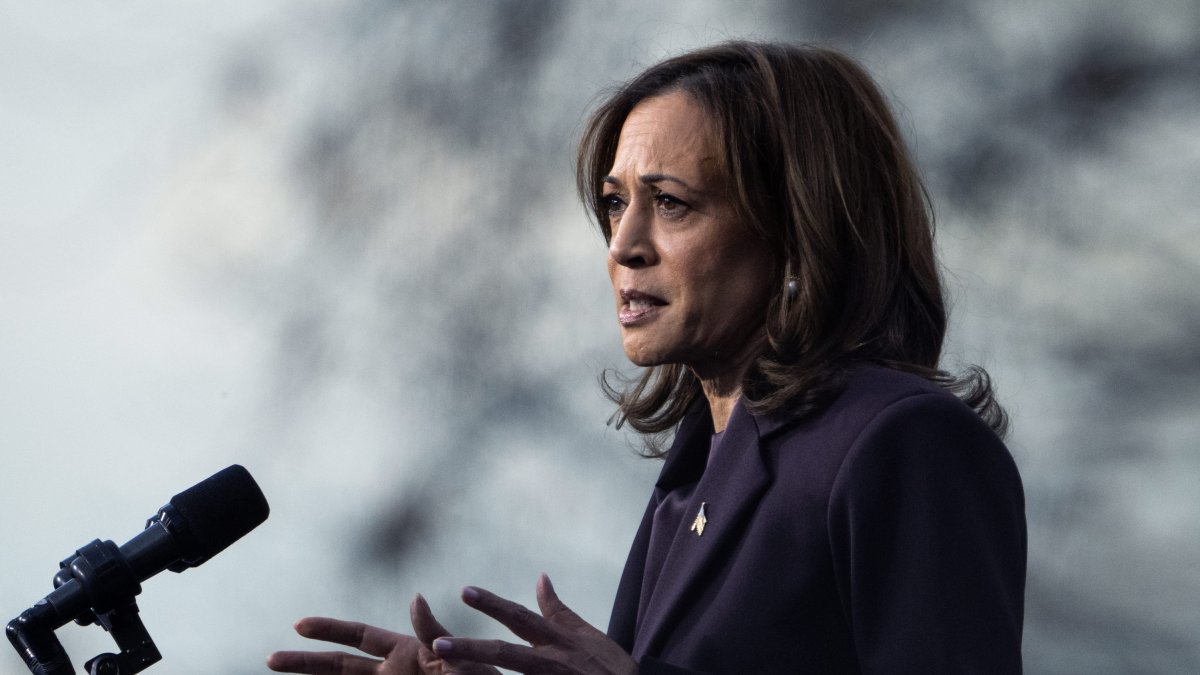
Kamala Harris at an appearance
The November election not only meant the loss of the White House for the Democrats. They have also lost the majority in the Senate and have failed to wrest control of the House of Representatives from the Republican Party. This all happened under the candidacy of Kamala Harris. However, despite the disaster, a large portion of her voters want her to continue leading the party's ticket, at least, until the next presidential election is held.
According to a survey by Echelon Insights, 41% of Democratic voters seemed not to have minded the resounding defeat suffered against Donald Trump, even with all that it entails, and would support Harris as their candidate again if the next presidential election were held right now.
This diverges from the opinion that is beginning to rise from within the Democratic Party, which stresses the need to begin to abandon the extremism that Harris, among other prominent members, represents and lean towards a more moderate candidate. Examples of this are, for example, making immigration management more effective and efficient, as well as taking on firmer stance on the issue of transgender athletes participating in women's sports.
Newsom and Shapiro
The poll offered its Democratic respondents several names as alternatives to Harris. The first to appear is that of Gavin Newsom, who 8% see as the alternative to the vice president and whose name has already been mentioned on several occasions to be the Democratic presidential candidate. In fact, the governor of California has already shown several indications that he wants to lead the opposition to Trump and his policies by launching messages such as that his state "is ready to fight."
Next on the list is another name that has also figured among the next leaders of the Democratic Party: Josh Shapiro. The Pennsylvania governor received the backing of 7% of Democratic voters to be the presidential nominee if Americans were to go to the polls now.
Buttigieg, Walz, ...
With 6% each, next in the running are Pete Buttigieg and Tim Walz. The transportation secretary, who has little time left in office, as he will soon be replaced by Sean Duffy (if and when confirmed by the Senate). Buttigieg already knows what it's like to fight to be the Democratic nominee for a presidential election. He ran in the primaries in 2020, coming in fifth place behind Joe Biden, Bernie Sanders, Elizabeth Warren and Michael Bloomberg.
It is curious that Walz appears as fifth favorite, as he was the second most responsible for the Democratic disaster in the November presidential election. Still, the Minnesota governor would receive some support to be the Democratic front-runner in the next election.
Further down were Alexandria Ocasio-Cortez (4%), Gretchen Whitmer (3%), J.B. Pritzker (2%), Andy Beshear (2%) and Cory Booker (2%).
Who is the favorite to be the Republican nominee?
He has not yet started his second term, but he knows it will be his last. Because Trump, with the four years he served between 2017 and 2021 and with his next four year term between 2025 and 2029, will not have a chance to extend his stay in the White House. That's why Echelon Insights also polled Republican voters on who their favorite is to succeed the president-elect. And there is one clear answer.
J.D. Vance, Trump's running mate and the second reason behind the Republican triumph, is the best positioned. This is certified by the 37% of Republican voters who would support him as the presidential candidate in 2028.
Behind Vance, with 9%, is Vivek Ramaswamy, who ran in the Republican primary but ended up withdrawing. He will also enjoy a high-profile position within the next Trump administration, heading, with Elon Musk, the Department of Government Efficiency (DOGE).

Politics
Musk's Department of Government Efficiency is looking for employees: Here are the requirements
Alejandro Baños
Behind them are Nikki Haley (9%), Ron DeSantis (8%), Ted Cruz (5%), Marco Rubio (5%) and Sarah Huckabee Sanders (2%).















